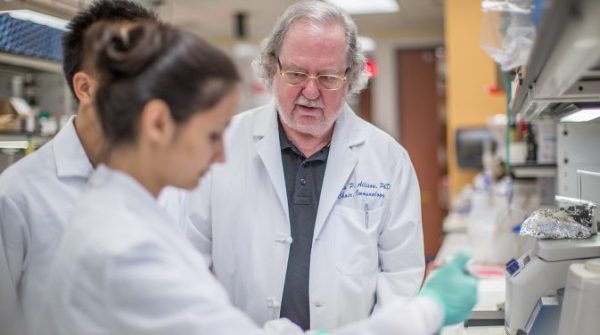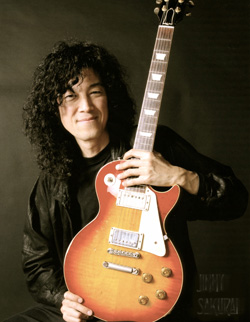Film Reviews: Three Fine Documentaries at SXSW — “Salvage,” “Breakthrough,” and “Mr. Jimmy”
By Gerald Peary
The first three films I watched at SXSW this year were picked by me with the editors in mind. Not coincidentally, the editors also had pedigreed Massachusetts roots.
For the South by Southwest Film Festival (SXSW), March 8-March 16, how did I decide which films to see, with screenings spread all across Austin? Well, there’s the unusual plan of attack offered by my Boulder, Colorado-based friend, Garret. A veteran film editor, he often chooses movies based on who has cut them.
You heard right. Not the director. Not the actors. It’s the Editor as Auteur, molding raw cinema into works of Art. Garret seems to know several hundred working American editors, and when his favorites have films at SXSW, he’s there.
Does Garret’s method of selection actually pay off? The first three films I watched at SXSW this year were picked by me with the editors in mind. Not coincidentally, the editors also had pedigreed Massachusetts roots. Two are employed in and around Boston, the third is an ex-Bostonian now living in LA. Happily, the three SXSW documentaries they edited were all meritorious and very compelling.

A scene from “Salvage.”
Salvage, edited by Cambridge’s Sabrina Zanella Foresi, was filmed in the Northern Territories of Canada, where many of the citizenry of the town of Yellowknife have turned the messy, decrepit city dump into a kind of holy land of reclaim. The populace have taken what’s lying about there — broken, orphaned, forgotten — and methodically returned it to life in their homes, whether it’s soiled teddy bears newly laundered or discarded canned victuals eaten with appetite. Though Salvage’s cast of characters are outliers, unapologetic hoarders, their preservationist attitudes certainly will strike a chord with eco-minded viewers. We are shown concrete ways to reverse what’s happening in the world and probably in our own homes, where things slightly bruised or too “yesterday” are cast off, tossed in the garbage or recycle bins.
Did Zanella Foresi travel to upward Canada, 3,500 miles away, to get into the spirit of the movie? “Gerry, you know the answer,” she told me. Of course not, she’s the responsible mother of twin children. Her great achievement with Salvage is giving the audience a genuine ethnographic feel for the Northern Territory, a persuasive geography of the ex-Gold Rush capital, Yellowknife, even though she’s never been there outside of video images on her editing table.
Of course, Salvage also has a director, and an excellent one, Amy C. Elliott, responsible also for the wonderfully screwball doc, Wicker Kittens (2014), about ardent jigsaw puzzle contestants in the American Midwest.
Documentary two at SXSW was Breakthrough edited by Brookline’s Peter Rhodes. His challenges were twofold: (1) to shape the main character, a committed scientist, so that he’s fascinating enough to carry a feature documentary, and (2) to make the science palatable and understandable and interesting to a general audience. T-cells, anyone?
Rhodes succeeds superbly on both counts.
The scientist is Dr. James Allison, born in small-town Texas, who won the Nobel Prize for his seminal work over many years figuring out how to prod our immune system to fight cancer. Who’s against that? As we learn in Breakthrough, reputable scientists thought Allison’s theories were reckless and foolish, and skeptical pharmaceutical companies refused to fund his pioneering research. So that’s where the drama comes in Breakthrough, watching Allison stubbornly stay on course, keeping on doing his research while everyone around him tells him to shut down. It’s a great triumphant moment when this American scientist stands before the Swedish king becoming a Nobel Laureate.

A scene from “Breakthrough” featuring Dr. James Allison.
Allison, it turns out, is a great movie character, a natural for the screen, funny and gently eccentric, a forever bearded hippy who, in his non-scientist moments, loves a brewsky or two and playing his mean accordion in pickup blues bands. Besides the Nobel Prize, Allison’s finest moment — and most nervous one — is sitting in on harp with Willie Nelson.
Breakthrough also has a director of note, New Englander Bill Haney, who has a history of estimable social issue documentaries such as The Price of Sugar and The Last Mountain. There was a poignant moment on stage after the screening in which Haney gave an impassioned speech about how scientists such as Allison should be recognized by the world as creative artists. Yes, they should.
Editor three’s film is Mr. Jimmy, but in this case the skilled editor is also the talented director. He’s Peter Michael Dowd, who began his film career two decades ago as an intern in Cambridge in the office of Errol Morris. These days, Dowd makes a living in Los Angeles doing editing gigs so he can finance his movies.

A glimpse of Aki Sakurai, the subject of Peter Michael Dowd’s documentary.
An adage of making documentaries is to find as your main character an obsessive person, and Dowd did that in spades for his winning, captivating documentary. Mr. Jimmy is the story of Aki Sakurai, a young Japanese musician who became fixated beyond reason on the guitar playing of Led Zeppelin’s Jimmy Page. For thirty years, Sakurai has emulated Page by dressing in exact copies of Page’s wild-assed clothes and, more important, by replicating every Page music riff on his own guitar. He’s been playing gigs around the world in Zeppelin tribute bands, in recent years moving to the USA to carry out his dream of making pure, perfect Jimmy Page music.
Mr. Jimmy is sometimes comic, sometimes tragicomic, following the ups and skids of Sakurai’s career. The film’s protagonist is sometimes charming but also sulky and petulant, because almost every musician he hires for his bands is not as committed as he is to getting exactly EXACTLY right the Zeppelin sound. How does the real Jimmy Page feel about this? What a moving scene in Mr. Jimmy when Page makes a surprise visit to a Tokyo club where Sakurai is playing. But that was several years ago, and that stairway to heaven moment has never happened again. The closest Sakurai can get to rubbing against the real Led Zeppelin is the vicarious thrill of being in a band led by the son of the original drummer, John Bonham.
In Austin, the premiere screening of Mr. Jimmy was followed by an impromptu two-person concert with Sakurai being paired with a local musician whose specialty is channeling the singing of Robert Plant. I thought their mini-concert was stirring and pretty great. When we had a Texas barbecue dinner, Dowd chuckled when I told him that. “I’m sure that Aki had a hundred objections to why that guy didn’t really sound like the real Robert Plant,” he said., shaking his head.
Gerald Peary is a Professor Emeritus at Suffolk University, Boston, curator of the Boston University Cinematheque, and the general editor of the “Conversations with Filmmakers” series from the University Press of Mississippi. A critic for the late Boston Phoenix, he is the author of nine books on cinema, writer-director of the documentaries For the Love of Movies: the Story of American Film Criticism and Archie’s Betty, and a featured actor in the 2013 independent narrative Computer Chess. He is currently at work co-directing with Amy Geller a feature documentary, The Rabbi Goes West.
